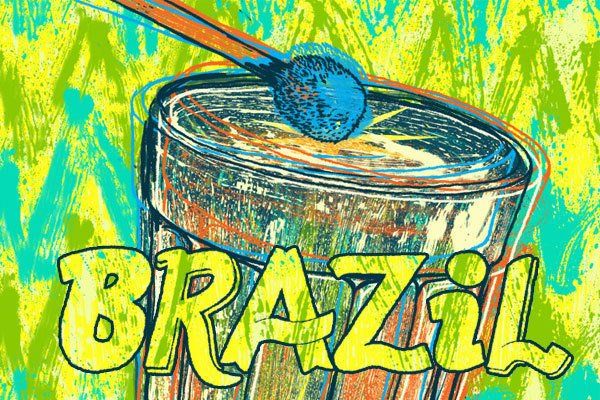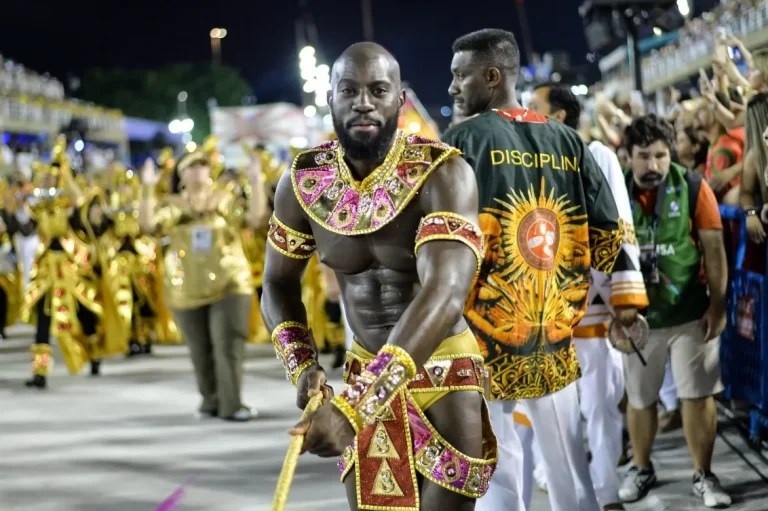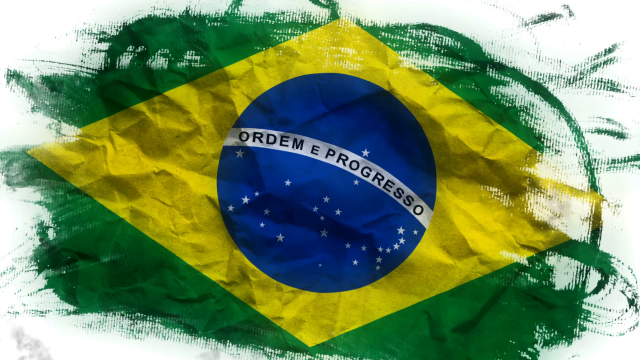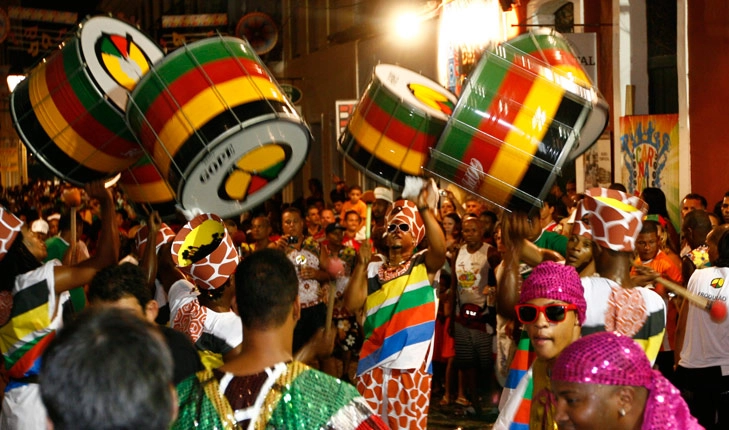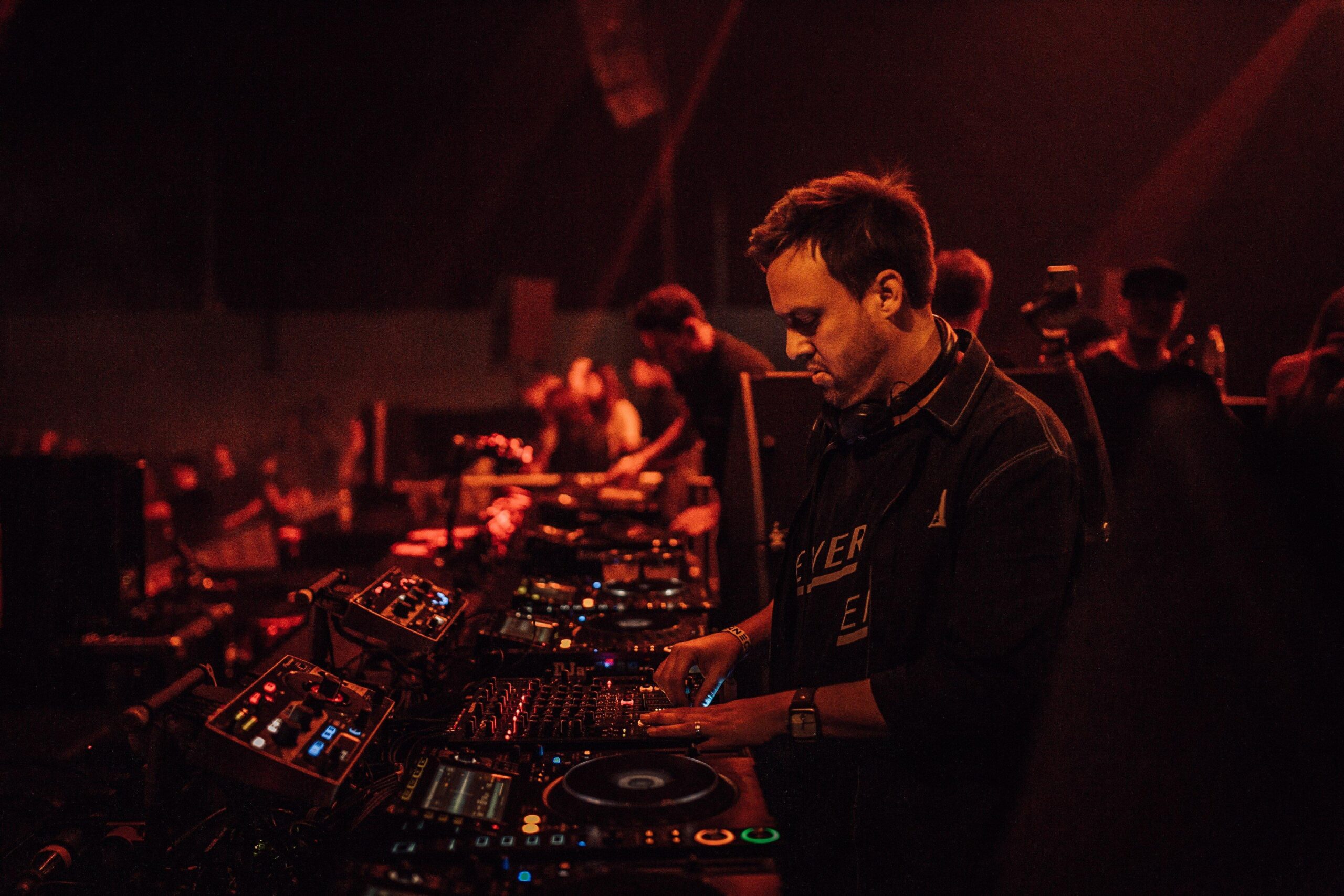
Now, the silver lining could be that people are going to make some amazing music coming out of this. When you don’t have the pressure of making a hit track for the club, you usually make something more interesting,” Maceo Plex predicts
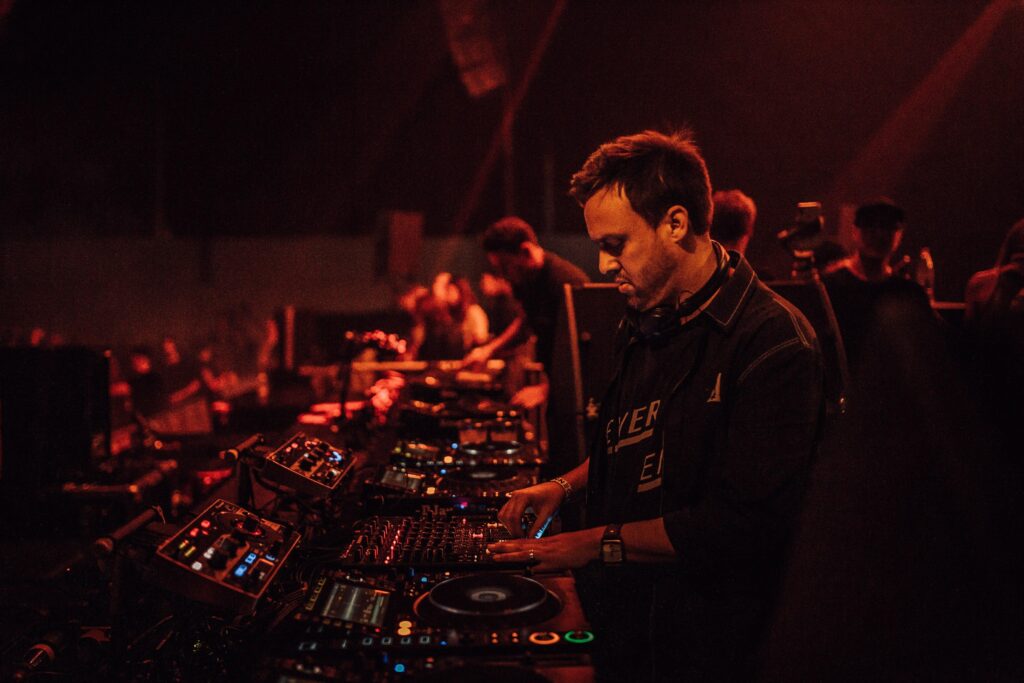
Amidst all the uncertainty of the coronavirus pandemic, one certainty is this will affect everyone in some way, and it already has had huge effects on all who work in the music industry. As major music events like Coachella, Ultra, SXSW, Glastonbury, Time Warp and many more continue to be canceled or postponed, as well as upcoming tour and club dates, many artists, managers, promoters and the crew members are facing gravely reduced or non-existent income over the next few months and possibly beyond.
We reached out to four globe-trotting DJ/producers—Barcelona’s Maceo Plex (Ellum Audio), Los Angeles’ Mikey Lion (Desert Hearts), San Francisco’s Luttrell (Anjunadeep) and Berlin’s Paul Van Dyk (Vandit Records)—and London/New York-based DJ manager Max Leader to learn how the pandemic is directly affecting them and those they work with. While this crisis is radically shifting their plans this year, they all see silver linings, especially in the sense of unity felt in the dance music community and, increasingly, humanity as a whole.
Love Lockdown: GRAMMY.com Staff Playlists To Get You Through The COVID-19 Quarantine
<style>.embed-container { position: relative; padding-bottom: 56.25%; height: 0; overflow: hidden; max-width: 100%; } .embed-container iframe, .embed-container object, .embed-container embed { position: absolute; top: 0; left: 0; width: 100%; height: 100%; }</style><div class=’embed-container’><iframe src=’https://www.youtube.com/embed//Fr0hQv09Cqg’ frameborder=’0′ allowfullscreen></iframe></div>
The Show Might Go On
Longtime (he’s been in it since ’90s raves) underground legend Maceo Plex, a.k.a. Miami-born Eric Estornel, was set to headline Ultra, Movement (which was recently rescheduled from May to September) and Time Warp plus a bunch of major club dates over the next few months. He underscores that this is going to be hard for everyone as they all scrambles to readjust, reschedule and recover losses, and thus will likely reshape the electronic music industry as a whole.
“It’s not just DJs it’s musicians, bands, anybody that their job is to congregate people together to hear music is affected. That can be promoters, DJs, they all have the same story, club owners, everybody’s pretty much screwed. It does give you a sense of unity because everyone’s in it together,” the Ellum Audio label head told us over the phone late last week.
Chip In Now: Recording Academy And MusiCares Establish COVID-19 Relief Fund
Leader has been in the industry for years, formerly as a promoter and currently, for the past 18 years, as a manager of a roster of major DJs. He also paints the picture of a challenging year for everyone planning and playing events in 2020, highlighting just how many dates and dollars have already been lost.
“The bread and butter for my artists and for me is in live shows. My clients tend to do anywhere from six to 12 shows a month and we work three to six months in advance. So, what happened two weeks ago, was the cancellation or attempt to reschedule the gigs, between one to three months from that moment to three months ahead,” he explained during a phone chat last week. “And the promoters that were booking for three to six months from that point, were not booking anymore because they didn’t know what was going on, which means that you’re already at nine months of no shows. So, if you start looking at nine to 12 months, it means in the space of two weeks, you’re suddenly 12 months away from receiving any income from touring.”
Canceling even just a few shows could be financially crushing to promoters, as well as the clubs and everyone else who works for them. “Also, these promoters, some of them are weekly promoters, some of them are monthly promoters, and they try to honor deals. Now you lose one show for artists of the caliber that I work with, you could lose $25,000, $30,000. If you lose that amount two or three times in a row, you could be out of business,” Leader noted.
For Estornel, van Dyk and Leader, their long, successful careers have put them in a place where they are currently okay financially. Of course, dipping too far into savings is stressful, as is not having an income stream to share with your team. “I’m already going into savings, because of having to cancel the ongoing business,” Leader added. “I would say that my business is 90 percent gigs, so I have effectively lost 90 percent of my business right now. And it happened immediately. It happened overnight.”
Estronel was set to debut his new M^3 live show in Los Angeles on March 14, which, as he put it, ended up being “the first weekend that no events were happening pretty much anywhere.” Two days before the event, California banned all gatherings over 250 people (now restrictions are even tighter) in the interest of public health and safety.
“I was waiting, too. I’m not a promoter, but I was promoting [M^3] pretty much in conjunction with Factory 93, so I already had the production and all the equipment and everything paid for. So that’s why it’s super important to reschedule. But, at the same time, I think Factory 93 was giving money back to whoever wanted it. I don’t know how they were doing it, but I had to pay for a lot of that production out of my pocket. It was already there and I was like, ‘Well, f**k it. Let’s do this stream.’ That wasn’t anywhere near what we were going to have planned for the holograms and all kinds of crazy stuff, but at least we used some of the cool lights. So those can kind of come together quickly.”
Both van Dyk and Luttrell had major tours slated this year in support of their 2020 albums—the German trance legend’s 10th album, Guiding Light, drops on April 17, while the S.F. deep house hero’s sophomore LP, Lucky Ones, came out on March 13. Of course, with global spring dates, both tours have been put on hold.
Luttrell was also set to make his Coachella stage debut in April, which will now have to wait until October. “It’s affected it quite a bit thus far. I have an album tour that was set to begin April 2. Now everything is being pushed back a few months to end of July through August. Feeling good about getting most of the shows rescheduled at least!” he shared over email.
For Mikey Lion and his Desert Hearts crew (the label/party maestro squad he leads and co-founded in 2012 in San Diego), their flagship “72+ hours of nonstop house and techno” festival was slated for April 23-26, but luckily they were able to find new dates pretty quickly. Some of the other festivals the crew were booked to play have also been affected, including at Lighting in a Bottle, whose 2020 edition was canceled, and Vujaday in Barbados, which was postponed to November. Desert Hearts is also beloved for the fun club nights and block parties they throw in a bunch of different cities. Those will have to wait this year as well.
“We postponed the festival to Oct. 22 to 26, 2020. Luckily our fest is in a really good place right now to come back because we were able to find a make-up date quickly and we didn’t have too many deposits out there right now because we were monitoring the whole situation,” Lion explained over the phone. He noted how this is not necessarily the case for other independent festivals and events, and that could have far-reaching negative effects in the industry. “I think that that’s probably the biggest problem that all the other festivals are going through right now, is that if you’re an independent festival that’s not backed by Live Nation, AEG or some other big financial backer, you’re using your ticket money to secure the acts that you’re having, all the equipment, everything. You have so many deposits out there. Then we have this totally unforeseen disease that’s coming through and everyone’s having to cancel, and then all of a sudden all the fans are looking for refunds and those festivals don’t have the money to be paying their fans back because it’s all tied up, it creates this really hectic ecosystem where the fans think that they’re getting ripped off and festivals can’t do anything about it.”
For all the events and festivals that are able to successfully reschedule and bring the majority of their lineup with them, that is a big relief, but of course a year’s worth of events can’t all happen in the fall and winter, especially outdoor events in colder climates. And who will get to play in the more limited event pool? Probably the bigger DJs, for the most part, with less slots for local opening acts—and less money for everyone overall. It is hard to predict exactly how hard the crisis will strike the global economy, but it has already done damage, with many hourly or gig workers currently out of work. For most people, the less income they make, the less money they will spend on going out, festival tickets and travel, so it becomes harder to get people to clubs and festivals.
“The festivals are already rescheduling and they’re not going to be able to pay the same,” Estornel noted. “So DJs fees are definitely going to go down in general. Which is kind of a trickle-down effect; the bigger DJs will have to charge less and some of the smaller DJs’ fees will then obviously go down as well. Then resident DJs that live in that city might not even play at all. Or if they do, for very cheap, because the promoters are not going to be able to charge the same entrance at the same ticket price or entrance at their clubs or whatever because people are not going to have any money,
“Rescheduling events, in my case, because of the fact that I’m in a position to headline, I get to reschedule first before others. I feel bad for all the other people that are, to promoters, maybe second or third tier artists that aren’t getting rescheduled right away… I’m in a position where I can’t complain because I can reschedule. But then again, I can’t because I’m booked. I was booked up for the rest of the year.”
Estornel also underscores that festivals moving towards later dates is going to cut into the bottom line of clubs, as everyone is now competing for a limited window of dates and likely a smaller pool of attendees with any money to spend on nights out. “A lot of these festivals are moving to those [later] months and they’re going to take up a lot of the weekends that clubs function really well in those parts. So economically, it looks pretty crazy,” he explained.
Leader echoed both of these points, that there are a limited number of dates for events and DJs to fill for the rest of the year and smaller pool of money for everyone. He is also cautious about predicting that events will be back up and running before at least a few months off. He notes recent conversations he’s had with promoters, those who are looking ahead to book fall/winter dates—no one can pay deposits right now. Everyone is pretty much just trying to stay afloat at this point.
“The conversation that I do have with bigger promoters is, ‘Okay, we’re looking at the last two weekends in October, the first two in November, the New Year’s Eve, we’re looking to fill these holes. This is who I want from your roster on that. However, obviously we can’t contract this right now. We obviously can’t pay any deposits for it right now,” Leader said.
Livestream Nation
van Dyk explains how not being able to travel to his sold-out Moscow show on March13led him to play via livestream to the packed venue in Russia from an empty club in Berlin. From that experience, he decided to launch a weekly livestream series from the club, which he’s calling PC Music Night. He and fellow German DJ/producer Chris Bekker have shared two livestreams so far, much to the delight of trance and progressive house fans around the world.
“I was supposed to play in Moscow last weekend and because they have restrictions of people from Germany flying into Russia because of the Coronavirus and you have to go into quarantine,” van Dyk explained. “What do people do when their shows are canceled and something cannot happen? Well we use the latest technology. We came up with the idea of me going into an empty club here in Berlin, have everything set up and then stream my performance from Berlin live to Moscow. It obviously is not the same as me being there because, it’s difficult to interact. I had a little monitor so I was able to see what’s going on in the venue in Moscow, but it was one way to sort of cope with the grim times and the possibilities that there are right now. and we came up with an idea from that streaming experience.”
WATCH LIST: Live Streaming Concerts From SOFI TUKKER To Neil Young
Since both the epic Paul van Dyk and Maceo Plex sets aired on March 13 and 14, respectively, many DJs and artists have understandably jumped on the livestream wagon, craving a way to continue to share their music with the world and engage with their fans. It’s safe to say that music livestream offerings are a bit oversaturated at the moment, but it has been fun to see the different ways artists and their fanbases have been engaging with them. For Estornel, he’s aiming to think outside of the box when it comes to interacting with his fans during quarantine times:
“Everything’s flooded with DJs doing streams. So now I’m thinking of new ideas… something more interesting. Somewhere between nerdy, like a studio talk but musical where you could dance to it. Hopefully we’ll do something for these months, until things get back to normal.”
Since we spoke last week, Lion and the Desert Hearts squad have started a new daily livestream series that’s very on-brand with their colorful, playful vibes. Stepping out of the box a bit, the eclectic offerings include Q&A on Mondays with Lion, cooking lessons with his brother and labelmate Porky on Tuesday, yoga on Wednesdays and DJ sets from the squad on Sundays.
It’s About Time For Unity!
While not being able to interact with others “irl” is difficult for all of us, connecting online, especially over music, can be especially powerful during these times of isolation. van Dyk witnessed this during his first PC Music Night livestream, where he encouraged fans to send track requests and special shout-outs in the comments.
“Chris Bekker and myself played for five hours for free for everyone who wanted to join, just simply to put a smile on people’s faces, for people to connect. There was so much interaction going on from people from the U.S. talking to people from Italy, from Italy talking to people in South America. It’s like they were all interconnecting. There was a sense of community, a sense of being there for each other. That is the essence of what we are trying to do with this DJ set.”
The Berlin legend underscored the importance of staying in touch with others while we are apart, as during times of global distress, we all need comfort and support. “It’s those little things to still be there for each other. I don’t really like the term social distancing because what we have to do is stay physically apart from each other. But if anything, we should be socially closer and support each other. I think this is what we can do, and this is what we should do in crazy times like this.”
Resources for Music Creators & Professionals Affected By COVID-19: Asia, Europe & The U.K.
Seeing as the coronavirus crisis really does affect everyone, van Dyk sees this as an opportunity to put aside our differences and practice real empathy and growth. “In these times right now, I think we can all interconnect. At the end, of the day it doesn’t really matter if you’re a Trump supporter or if you support Sanders. At the end of the day, it’s about the species, us as humans. Everyone is affected by it. We have to be there for each other. And that’s about actually putting the human first, putting the real us first and therefore being there for each other,” he added.
Lion pointed to the surprising and rather atypical unity we’re seeing here in the States between Democrats and Republicans as they try to address the crisis is something to be celebrated. It could also have policy implications that change our lives for the better going forward.
“I think that things like universal healthcare and ideas like universal basic income are at the forefront right now of things we’re realizing would be a massive help. It’s crazy to see Republicans even embracing those things right now because of the situation that we’re in. I don’t think they would ever come to grips with and accept it unless they’re seeing it affect them,” Lion stated. “Hopefully we start getting some relief for people that are really struggling right now.”
“I think that people are going to come out of this much more understanding of other people’s situations and we are all in this together,” he added. “I think that we’re going to start seeing a lot more compassion from people in the world.”
Luttrell echoed their messages, in sharing what gives him the most hope right now: “I feel like a big crisis like this—especially one that affects the world all at once—gives us an opportunity to come together and become closer as humans on this planet.”
In the midst of trying to reschedule, reorganize and roll with the waves of the world, everyone we spoke to has already felt unity across the electronic music scene and the larger music and events industry. As Lion noted, many artists have been understanding about returning deposits for canceled events, given the circumstances, even though money will not really be coming in for a bit. At the end of the day, everyone in entertainment is more or less in the same boat right now.
“For the most part, I think that agencies and the artists are being really cool with getting back to the deposits in a lot of circumstances because I think everyone gets it, that we’re all in this together,” Lion said. “People are definitely working together on it. At the same time, that’s money coming out from the artists and all of our foreseeable calendar just got completely wiped out, basically. I don’t have any income coming, none of the other Desert Heart guys do, and we don’t know how long this is going to last.
“It’s a really harrowing experience, and it’s not just the artists that are going through it, it’s the managers, the agents, all the photographers and videographers, security, bartenders, all the logistics people to build teams. The list goes on and on and that’s just the music industry. You know, the entire entertainment industry is getting absolutely battered right now. Think about Las Vegas, it’s a city of almost 700,000 people and their entire ecosystem is based on entertainment. That entire city’s pretty much out of work right now, I’d imagine.”
heir best life with their favorite humans that are stuck at home right now makes me really happy
To Release Or Not To Release?
As van Dyk put it, music is a necessity in most people’s lives, especially those who make it. Music plays an important part in all of our daily lives, and right now feels like a time where many of us are turning to music to escape or to dive into our feelings. “I’m a musician. To me, music is an essential of part of my life. When I’m sad I’m listening to music. When I’m happy, I’m listening to music. When I’m somewhat in between, I’m still listening to music. It’s my passion. Therefore, music is something that’s essential, from my perspective, in everyone’s life,” the German artist said.
“Right now, everyone has endless time on their hands,” Lion added. “People are digging, people are paying attention, everyone’s at their computer. It is a good time to get stuff into people’s hands and really try to affect people in a positive way. Music’s absolutely one of the best ways to do it.”
“To me, music is an essential of part of my life. When I’m sad I’m listening to music. When I’m happy, I’m listening to music. When I’m somewhat in between, I’m still listening to music. It’s my passion.” – Paul van Dyk
Perhaps it’s a great time to put out an uplifting track or music video, but what about releasing an album or club cuts? While many in the industry seem to be encouraging fans to support their favorite artists with online album and merch sales, other entities, like Amazon and even some artists themselves, have decided now is not necessary a good time to release projects. If you can’t tour in support of the release, will the financial investment in the project be worth it?
For electronic artists specifically, who support and promote each others’ new, often then-unreleased, records by playing them at their DJ sets around the world, the hype and release cycle just had a big wrench thrown through it. Additionally, if most of the DJs of the world are hunkering down in their home studios right now, which tracks and albums will cut through the noise when everything is dropped in a few months?
Leader’s comments speak to this, and the “hustle,” as he put it, that will ensue to get the gigs and have your music heard this year.
“You can definitely plan ahead in terms of what you’re releasing to the world. Everyone is assuming that come July, August, this will die down. I personally am not having conversations besides with the most optimistic of promoters about shows, pre-October, right now. And really, most of the conversations are ‘Well, let’s see what the next couple weeks unfolds for us,’ so you’re not really banking on anything there. But in terms of products or music being released, and social media, building your fan base, and working on consultancy jobs or working with brands, there’s still some business out there that can be done. It’s a hustle.”
“One thing that I am thinking is that all these DJs who usually are gigging Friday, Saturday and Sunday, home on Monday, recovering on Tuesday, making music on Wednesday, and then getting ready to tour again on Thursday, are finally having long periods of time to actually make music. And so, I think what we’ll find is a plethora of music coming out at the same time, which has an effect on the developing artists,” Leader continued. “Even if I’m looking in October [for their release], I think the market is going to be really excited about the [bigger] producer who’s finally released some new material because they had four, five months off the road.”
Estornel and Lion also spoke to releasing tracks during the age of COVID-19:
“You don’t sell music to dance to or to DJ to when nobody can go out and dance,” Estornel explained. “They’re not really selling that much music. You have all these artists that had their releases planned and it’s like if you postpone the schedule, then their music doesn’t come out until way later, when that music’s old, basically.”
“You can’t really go test out new tracks now. I feel like the entire record label promo system right now is just worthless, because how are people even going to go try out your tracks or get feedback on stuff?” Lion says. “I’ve been seeing a lot of artists go to moving all their stuff over to Bandcamp because it’s a much more direct peer-to-peer system over there than having a middle man like Apple Music or Beatport. I’m actually running through and getting our Bandcamp set up today.”
Read: Musicians Earn $4.3 Million From Bandcamp With Nearly 800,000 Items Sold On Friday
Creativity & The Future Of Dance Music
Regardless of artists’ personal stances on releasing new music now, it’s likely many of them will be using the ample free time to work on music in some way.
“The city where I live, San Francisco is now on lockdown,” Luttrell said. “I won’t be traveling outside my apartment much the next few weeks. I’ll take it as an opportunity to focus on having more interaction with fans online and come up with fun ways to promote different songs on the album… I’m already working on a bunch of new songs that will eventually be the next album, so I feel like there’s going to be a lot of time to make that really special. A lot of those songs will have been written during this lock down in S.F., so maybe I’ll use the weirdness of it all as some sort of inspiration.”
Similarly, van Dyk also feels new music will come out of this experience for him. “I finished my new album,” he said. “I was ready to be out on the road in the world to play my music in front of my audience. So it’s a bit of a strange timing for me, but I constantly make music and so, I’m pretty sure whatever extra time I have at hands now, some music will come out of it.”
Leader also sees these times as a creative challenge and powerful reset for his work. “I think that everyone’s playing from a level playground now. You know, everyone is suffering, and in a way, we’re all in it together for that reason. And I’m optimistic by nature. I believe that this will end, and we will get back to business, and that it allowed me to really think outside the box in terms of my business. If you’re in an intense job like I’m sure you have, you’re going a million miles an hour, and you always wish you had a second to breathe, this is giving us that second.”
Estornel, who has a young son, acknowledges the challenge of working from home if you have kids that are now out of school. Yet he is embracing the creative exploration that may likely come from the reduced pressure he and other DJs are inevitably facing to make the next club banger.
“Now, the silver lining could be that people are going to make some amazing music coming out of this. When you don’t have the pressure of making a hit track for the club, you usually make something more interesting,” Estornel said. “So maybe something new will come out of this, but for the most part it also kind of depresses people because if things are kind of bad out there and you’re making dance music and nobody’s dancing. It’s like, f**k. You don’t feel inspired. It’s tough.
Maceo Plex added, “I feel less pressure to make a bomb kind of, because there’s no reason to right now. In the past, the reason why I have any kind of a bigger name is for all the music that I made that I wasn’t worrying about making a bomb. I was just trying to make something that was cool and creative, or pretty or just different sounding tracks. Those ended up becoming bombs. So, I mean, it’s kind of good. Creatively, I don’t have that pressure. So I might have a bomb after this, I don’t know. I’d rather not think about it.”
Regardless of whether or not the world is gifted any glittering Maceo Plex bombs over the next month, electronic music will be shifting. With a halt as drastic as this, there is no way things will remain exactly the same when we return to the dancefloor. He sees parallels to the disco backlash in the late-70s that, while harrowing, directly led to the emergence of house music and thriving underground scenes in Chicago, New York City and beyond. As the saying goes, when one door closes, another one opens.
“I think this may be the biggest blow to clubbing since the disco backlash back in the late-’70s, early 80s when everybody was for just a moment it was like this media-driven burning of disco records and stuff.” Maceo Plex said. “Since then, clubbing got bigger and better and dance music got way more popular over the past 30, 40 years. I think this is kind of like a reset. I’m hopeful we’re going to come out of this strong. Nothing can really stop people from listening to dance music and dancing. …We’ll be fine, in other words. It’s just that it’s going to take a couple of years to get back to the size of festivals that we were used to for a little while. They’re kind of almost ridiculous at this point; 100,000 people festivals and stuff like that. I don’t feel bad for them as much but because they’ve made so much money, but EDM, this is probably going to be such a huge blow to commercial EDM music more so than underground music.”
“I think underground dance music’s going to get big. It’s going to get bigger, in a way. It’s going to see a Renaissance,” Estornel concluded. “Whatever happens, the dance music community is in for a wild ride, with new faces and sounds likely emerging over the coming years.”

